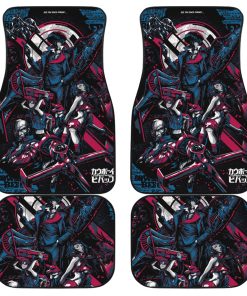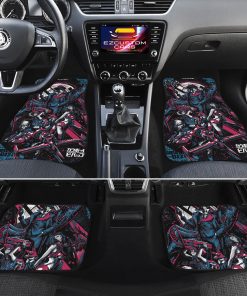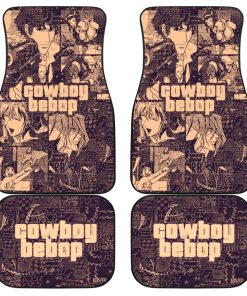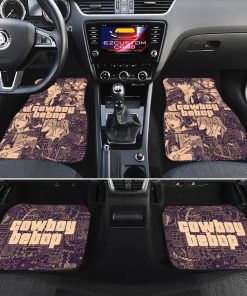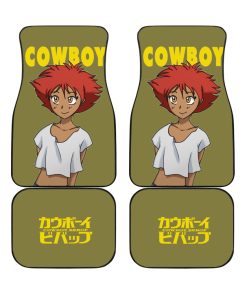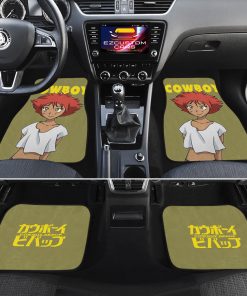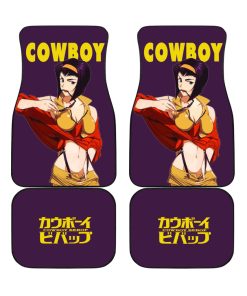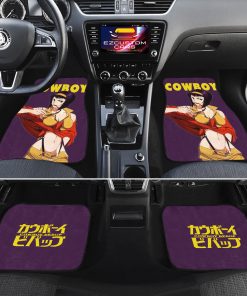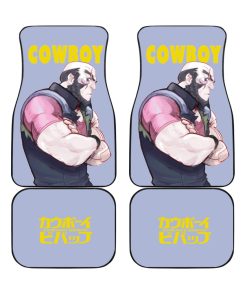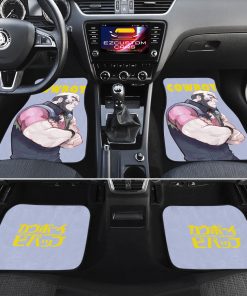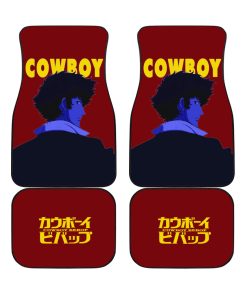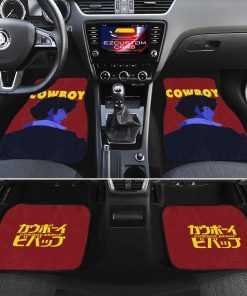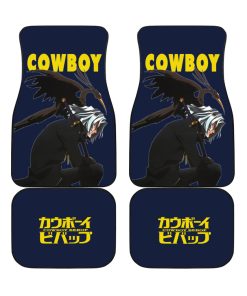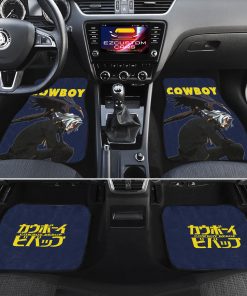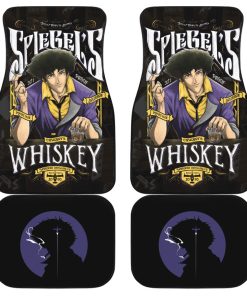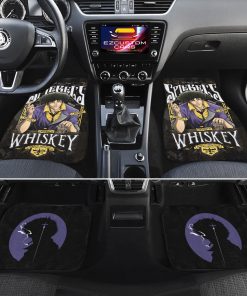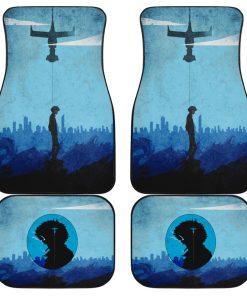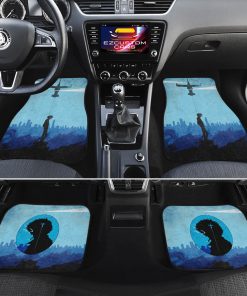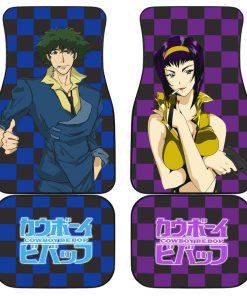No products in the cart.
Whenever Cowboy Bebop initially circulated in spring of 1998 on TV Tokyo, just episodes 2, 3, 7-15, and 18 were communicated, it was finished up with a recap extraordinary known as Yose Atsume Blues.
Cowboy Bebop has been hailed as one of the greatest animated television series of all time. It was a critical and commercial success both in Japanese and international markets, most notably in the United States. It garnered several major anime and science-fiction awards upon its release, and received unanimous praise for its style, characters, story, voice acting, animation, and soundtrack
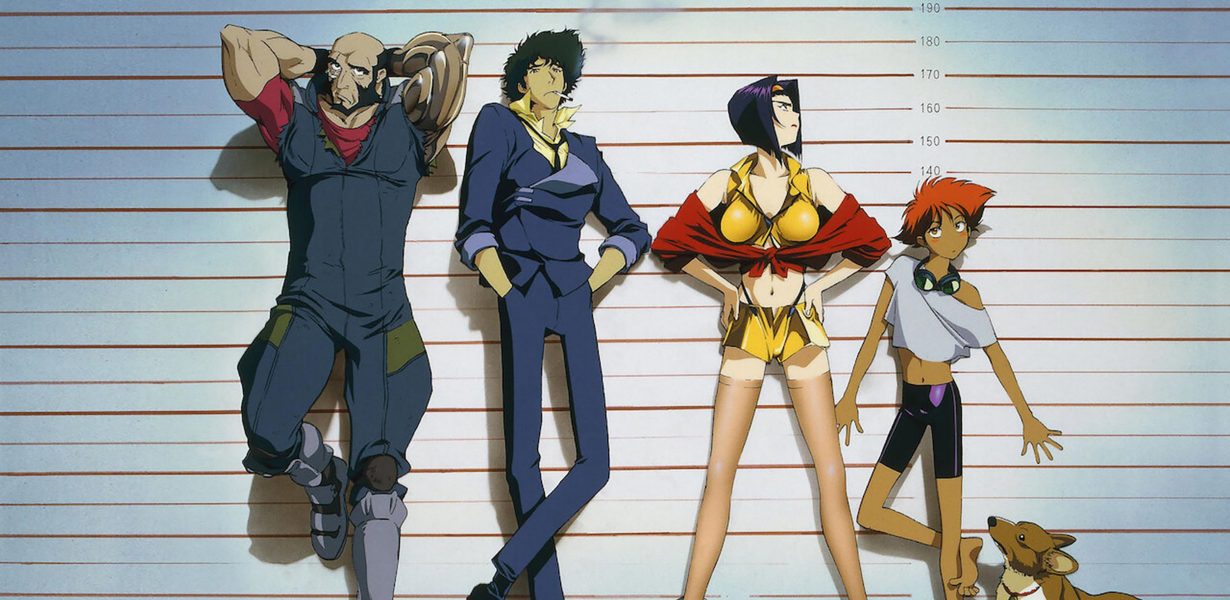
Cowboy Bebop was not an evaluations hit in Japan, yet sold more than 19,000 DVD units in the underlying delivery run, and 81,000 generally speaking. Hero Spike Spiegel won Best Male Character, and Megumi Hayashibara won Best Voice Actor for her job as Faye Valentine in the 1999 and 2000 Anime Grand Prix, separately.
Cowboy Bebop’s greatest impact has been in the United States, where it debuted on Adult Swim in 2001 with many reruns since. The show’s weighty Western impact hit home for American watchers, where it turned into a “addictive substance” to anime focused on grown-up crowds.
The nostalgia vibes you get from hearing these voices again 🔥🔥🔥
The legendary Cowboy Bebop English dub cast reunites for a heartfelt chat! pic.twitter.com/fcQ1yUX4rw— Cowboy Bebop (@CowboyBebop) November 19, 2021
“They are weary of ordinary fixed style jazz,” read the initial credits of “Cowboy Bebop.” “The work, which turns into another class itself…will be called ‘COWBOY BEBOP.'”
“Cowboy Bebop” is altogether different from other anime of now is the ideal time, similarly as its makers expected. Its focal characters are grown-ups as opposed to youngsters, and they possess a multiracial and multilingual world. They pilot little and deft spaceships rather than goliath robots. The episodes swing from repulsiveness to parody to misfortune, yet are brought together by the cast, the ragged conditions, and in particular, the soundtrack.
If you like custom-designed products inspired by the Cowboy Bebop please check out more here
Cowboy Bebop Collection
Cowboy Bebop Car Floor Mats, Cowboy Bebop All Characters Car Floor Mats, Anime Car Accessories
$69.99 – $75.99
Cowboy Bebop Collection
$69.99 – $75.99
Cowboy Bebop Collection
Cowboy Bebop Car Floor Mats, Cowboy Edward Car Floor Mats, Anime Car Accessories
$69.99 – $75.99
Cowboy Bebop Collection
Cowboy Bebop Car Floor Mats, Cowboy Faye Valentine Car Floor Mats, Anime Car Accessories
$69.99 – $75.99
Cowboy Bebop Collection
Cowboy Bebop Car Floor Mats, Cowboy Jet Black Car Floor Mats, Anime Car Accessories
$69.99 – $75.99
Cowboy Bebop Collection
Cowboy Bebop Car Floor Mats, Cowboy Spike Spiegel Car Floor Mats, Anime Car Accessories
$69.99 – $75.99
Cowboy Bebop Collection
Cowboy Bebop Car Floor Mats, Cowboy Vicious Car Floor Mats, Anime Car Accessories
$69.99 – $75.99
Cowboy Bebop Collection
Cowboy Bebop Car Floor Mats, Spiegels Whiskey Car Floor Mats, Anime Car Accessories
$69.99 – $75.99
Cowboy Bebop Collection
Cowboy Bebop Car Floor Mats, Spike Spiegel Car Floor Mats, Anime Car Accessories
$69.99 – $75.99
Cowboy Bebop Collection
$69.99 – $75.99

